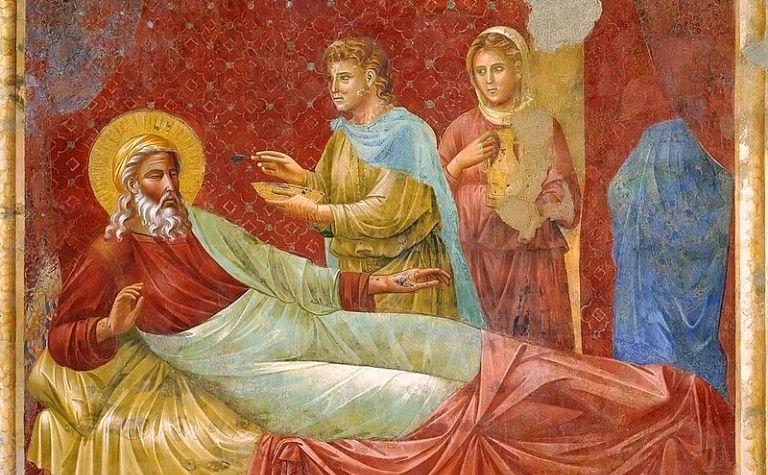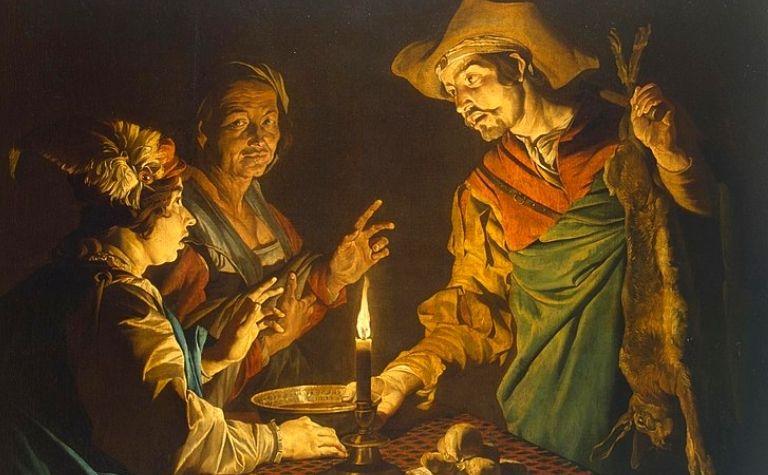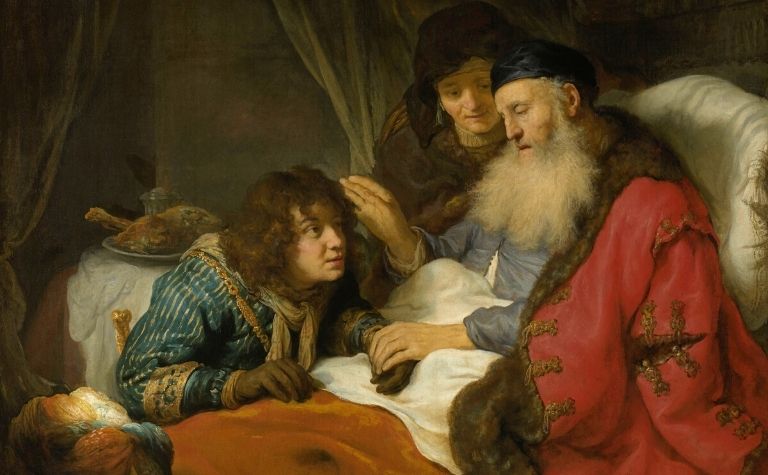To many Bible readers, God’s statement “Jacob I loved, but Esau I hated” (Rom. 9:13; Mal. 1:3) is stunning and confusing. What possible explanation is there for God to love Jacob, yet hate Esau? How does God’s hatred for Esau align with his love for all people as it’s expressed in verses like John 3:16?
Many Bible scholars believe the phrase “Jacob I loved, but Esau I hated” is a reference to the descendants of each brother. Israel descended from Jacob and Edom descended from Esau. The descriptions of “love” and “hate” are hyperbolic ways of referring to God’s election of Israel and his non-election of Edom.
What was the nature of Jacob and Esau’s relationship? Did God choose Jacob and not Esau based on their individual righteousness? Did God choose Jacob before he was born or afterward? Keep reading to learn the answers to these questions and others.
Also see Why Did God Choose Abraham? to learn more.

Jacob I Loved But Esau I Hated: 3 Views
Bible scholars have differing views on the phrase “Esau I hated.” Some interpret the phrase literally and believe it applies to Esau as an individual. Others believe the phrase is hyperbolic or exaggerated and applies to Esau’s descendants, the nation of Edom, because they were in conflict with Israel at different times (e.g. Num. 20:14-21).
| Translation | Romans 9:13 |
|---|---|
| NIV | Just as it is written: “Jacob I loved, but Esau I hated.” |
| NLT | In the words of the Scriptures, “I loved Jacob, but I rejected Esau.” |
| ESV | As it is written, “Jacob I loved, but Esau I hated.” |
| KJV | As it is written, Jacob have I loved, but Esau have I hated. |
| NKJV | As it is written, “Jacob I have loved, but Esau I have hated.” |
| NASB | Just as it is written, “JACOB I LOVED, BUT ESAU I HATED.” |
What was the nature of Jacob and Esau’s relationship? Jacob and Esau were twin brothers. Their father Isaac favored Esau, which is exemplified in the story of the birthright (Gen. 27:1-40). Yet God elected Jacob and his descendants to produce the Messiah, not Esau and his line. Hostility between the brothers grew so severe that Esau wanted to kill Jacob (Gen. 27:41). Several years later, the brothers peacefully reunited (33:1-17).
Also see How Old Was Jeremiah When God Called Him? to learn more.
View 1: Esau refers to the Edomites and Jacob refers to the Israelites
The majority view found in the best Romans commentaries is that “Esau” refers to the nation of Edom and “Jacob” refers to the nation of Israel. Scholars who argue for this view commonly cite two primary reasons.
First, the context of Romans, chapters 9 through 11 is about the nation of Israel, not Jacob as an individual. There are no indications in the passage to suggest that Paul — who is clearly discussing Israel corporately in chapters 9-11 — made a change and began writing about Jacob and Esau as individuals. But if this is true, why doesn’t he refer to “Israel” and “Edom” in 9:13, instead of “Jacob” and “Esau”? The answer is because he’s quoting a verse from the Old Testament.
- Did God love Jacob and hate Esau based on their individual righteousness? No. Romans 9:10-11 reads, “And not only so, but also when Rebekah had conceived children by one man, our forefather Isaac, though they were not yet born and had done nothing either good or bad — in order that God’s purpose of election might continue, not because of works but because of him who calls” (emphasis added).
- Was Jacob’s election announced before they were born? Yes. Their mother Rebekah was told, “Two nations are in your womb, and two peoples from within you shall be divided; the one shall be stronger than the other, the older shall serve the younger” (Gen. 25:23). Paul refers to this passage in Romans 9:12-13 when he writes that Rebekah “was told, ‘The older will serve the younger.’ As it is written, ‘Jacob I loved, but Esau I hated.'”
Second, Paul is quoting from Malachi 1:3, whose mention of Esau is a reference to the nation of Edom. At the time, the Israelites were trying to reconcile having their nation destroyed and dispersed by the Babylonians, while the Edomites didn’t experience the same fate. In response, God says that he loves Israel and that Edom will be judged.
- Did the exile mean that God didn’t love Israel? No. Malachi 1:2-3 reads, “‘I have loved you,’ says the LORD. But you say, ‘How have you loved us?’ ‘Is not Esau Jacob’s brother?’ declares the Lord. ‘Yet I have loved Jacob but Esau I have hated. I have laid waste his hill country and left his heritage to jackals of the desert.'”
- What does the future hold for Edom? God will judge them. Malachi 1:4-5 reads, “If Edom says, ‘We are shattered but we will rebuild the ruins,” the Lord of hosts says, “They may build, but I will tear down, and they will be called ‘the wicked country,’ and ‘the people with whom the Lord is angry forever.’” 5Your own eyes shall see this, and you shall say, “Great is the Lord beyond the border of Israel!”
Also see Did God Create Dinosaurs? to learn more.

View 2: Jacob and Esau are references to the individual men
Some Bible scholars argue that the phrases refer to the individual men, Jacob and Esau, and not their descendants. This is based on a few reasons:
- The verses in Malachi and Romans both say “Jacob” and “Esau,” not “Israel” and Edom,” so the most straightforward reading suggests that the writers aren’t referring to the descendants of the men.
- If the phrase “Jacob I loved” refers to the nation of Israel, problems arise because it’s clear that not every Israelite was faithful to God.
- If the phrase “but Esau I hated” refers to the nation of Edom, problems arise because non-Israelites (even if a small number) were faithful to God before the time of Jesus Christ.
- It aligns best with Deuteronomy 23:7, which instructs people not to hate the nation of Edom: ““You shall not abhor an Edomite, for he is your brother. You shall not abhor an Egyptian, because you were a sojourner in his land.” (ESV)
| Translation | Malachi 1:3 |
|---|---|
| NIV | but Esau I have hated, and I have turned his hill country into a wasteland and left his inheritance to the desert jackals. |
| NLT | but I rejected his brother, Esau, and devastated his hill country. I turned Esau’s inheritance into a desert for jackals. |
| ESV | but Esau I have hated. I have laid waste his hill country and left his heritage to jackals of the desert. |
| KJV | And I hated Esau, and laid his mountains and his heritage waste for the dragons of the wilderness. |
| NKJV | But Esau I have hated, And laid waste his mountains and his heritage For the jackals of the wilderness.” |
| NASB | but I have hated Esau, and I have made his mountains a desolation and appointed his inheritance for the jackals of the wilderness.” |
Also see Why Does God Hate Me? to learn more.

View 3: “Love” and “hate” are idioms for preference
Like the first view, this interpretation believes “love” and “hate” are hyperbole for God’s election of Jacob and Israel and his non-election of Esau and Edom. The viewpoint finds a cross-reference in Jesus’ teaching on hating one’s family.
- Luke 14:26 reads, “If anyone comes to me and does not hate his own father and mother and wife and children and brothers and sisters, yes, and even his own life, he cannot be my disciple.”
- However, Matthew 10:37 includes a gentler expression of the same principle: “Whoever loves father or mother more than me is not worthy of me, and whoever loves son or daughter more than me is not worthy of me.”
Also see How Tall Is God? to learn more.
Related Articles
The prophet Jeremiah is one of the most fascinating people in the Bible. The book named after him contains moments of hope in the midst of tremendous struggle and despair. People often find...
Solomon is one of the most fascinating people in the Bible. He wasn't only the king of Israel, but he was wiser and richer than all of his contemporaries. King Solomon lived a life of luxury and...
